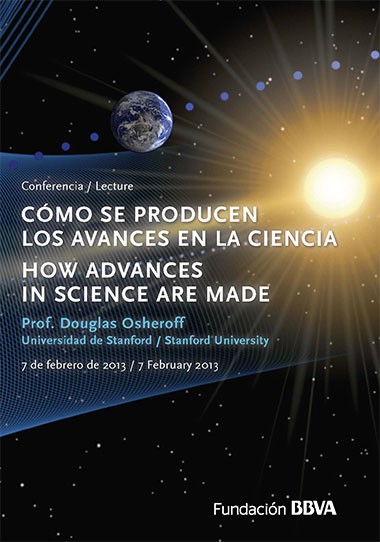
DVDLecture available online
Cómo se producen los avances en la ciencia / How Advances in Science are Made
1996 Nobel Prize in Physics awardee Douglas Osheroff explains in this lecture how the simplest question can often lead to a breakthrough in science, but adds that there are strategies that increase the likelihood of achieving success. Science is not only made up of great discoveries, but also advances whose impact it is sometimes difficult to predict. Osheroff draws on his own experience and on historical examples to analyze the factors that contribute to scientific advance: from the research approach itself to the strategy, the environment or the qualities of the scientist in charge of the investigation.
This lecture by Professor Osheroff forms part of the BBVA Foundation’s collaboration with the Nicolás Cabrera Institute of Materials Science (Universidad Autónoma de Madrid) in organizing the 2013 lecture series Colloquium: Frontiers in Condensed Matter Physics. The Director of the Institute, Hermann Suderow, serves as moderator for the event.
